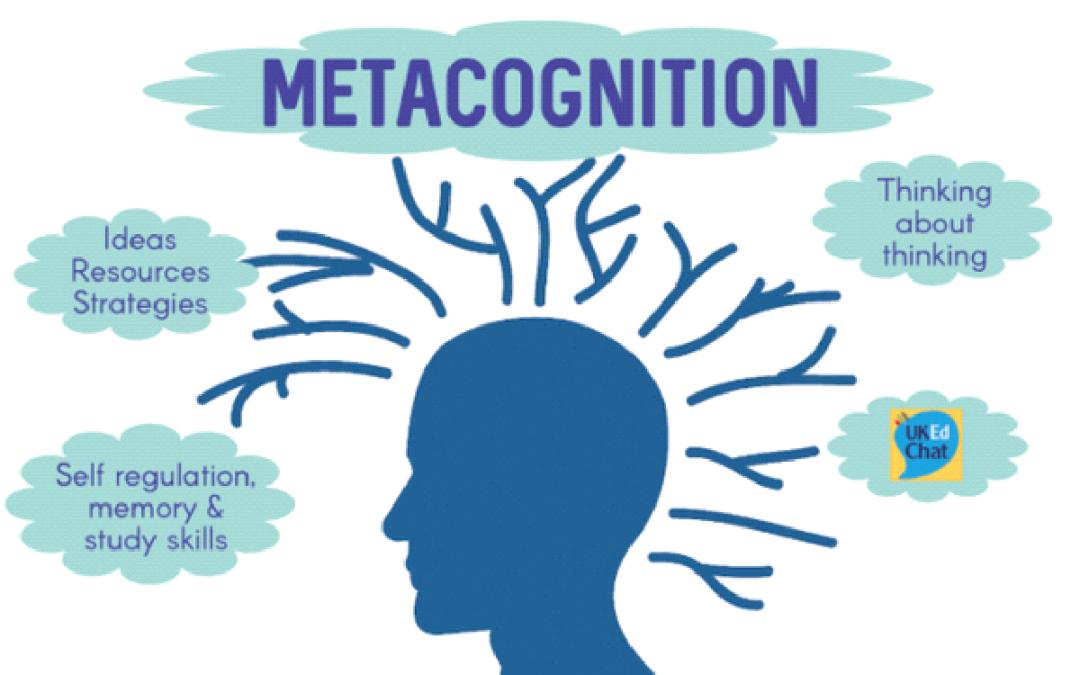Concept
Amongthemanydefinitionsofmetacognition,theonemadebyFlavell,thepioneerofmetacognitiveresearch,isthemostrepresentative.In1976,heexpressedmetacognitionas"individual'sknowledgeaboutone'sowncognitiveprocessandresultsorotherrelatedthings",and"inordertocompleteaspecificgoalortask,accordingtothecognitiveobjecttoactivelycarryoutthecognitiveprocessMonitoringandcontinuousadjustmentandcoordination".In1981,hemadeamoreconcisesummaryofmetacognition:"reflectionorregulationofanyaspectofknowledgeorcognitiveactivitiesofcognitiveactivities".A.BrownandL.Bakeralsobelievethatmetacognitionis"anindividual'sknowledgeandcontrolofthecognitivedomain".Itcanbeseenthattheconceptofmetacognitionincludestwoaspects,oneisknowledgeaboutcognition,andtheotheristheregulationofcognition.Inotherwords,ontheonehand,metacognitionisaknowledgeentity,whichcontainsknowledgeaboutstaticcognitiveabilities,dynamiccognitiveactivities,etc.;ontheotherhand,metacognitionisalsoaprocess,thatis,thecurrentcognitiveactivityTheconsciousnessprocess,theadjustmentprocess.As"cognitionaboutcognition",metacognitionisconsideredtobethecoreofcognitiveactivitiesandplaysanimportantroleincognitiveactivities.
Thedifferencebetweenmetacognitionandcognition
Isthereanydifferencebetweenthetwoconceptsofmetacognitionandcognition?ExperimentalstudiesbySlife,Swanson,andothershavegivenapositiveanswertothisquestion.Slifeetal.studiedwhethertherearedifferencesinmetacognitiveabilitiesamongsubjectswiththesamecognitivelevel.Therearetwogroupsofsubjects:childrenandnormalchildren.ThereisnosignificantdifferenceinIQscoresbetweenthetwogroupsofchildren,andthescoresofthe10mathproblemsandthemathachievementtestarematched.Theresultsshowthattherearesignificantdifferencesintwometacognitiveindicatorsbetweenthetwogroupsofsubjectsinproblem-solving:①LDchildren’sknowledgeabouttheirownproblem-solvingskillsislessaccurate;②LDchildren’sknowledgeoftheirownproblem-solvingskillsislessaccuratewhenmonitoringtheirownproblem-solvingskills.Inaccurate,tendstooverestimate.Participantswiththesamelevelofcognitionhavedifferentperformancesinmetacognition.Itcanbeseenthatmetacognitionandcognitionaretwoconceptsthatcanbeseparated.
Metacognitionandcognitionbelongtohumancognitionandthinkingactivities.Thedifferencesbetweenthetwoaremainlymanifestedinthefollowingaspects:

Theobjectsofcognitionandthinkingaredifferent
Theobjectofcognitiveactivityisexternalandspecific.Forexample,theobjectofmemoryisaspecificeventoracertainarticle,andtheobjectofreadingisaspecifictext;whiletheobjectofmetacognitionisinternalWhatiscorrectandabstractisthecognitiveactivitybeingcarriedoutbythesubjectitself.
Thecontentoftheactivityisdifferent
Thecontentofthecognitiveactivityistoperformacertainintellectualoperationonthecognitionobject,forexample,readingacertainarticle,throughthewordingofthearticleRecognize,understandsentencesandparagraphs,andfinallyachieveanoverallgraspofthearticle.Thecontentofmetacognitiveactivitiesistoregulateandmonitorcognitiveactivities.Forexample,themetacognitiveactivitiesinreadinghaveaclearpurposeofreading,focusonthemaincontentofthereadingmaterials,andcontinuouslyadjustthecurrentreadingactivities.Self-questiontocheckthereadingeffect,takecorrectivestrategiesatanytime,etc.
Differentmodesofaction
Cognitiveactivitiescandirectlyenablethecognitivesubjecttomakeprogressincognitiveactivities.Forexample,ifanindividualreadsanarticle,hecanknowthegeneralideaofthearticle.Centralidea.However,metacognitioncanonlyindirectlyaffectthesubject'scognitiveactivitiesthroughtheregulationofcognitiveactivities,forexample,throughself-examinationtoconfirmwhetherthesubject'sreadingreachestheexpectedgoal.
Thespeedofdevelopmentisdifferent
Fromtheperspectiveofindividualcognitivedevelopment,metacognitionlagsbehindthedevelopmentofcognition.Studieshaveshownthatbabieshavecertaincognitiveabilitiesaftertheyareborn.However,childrenonlybegintoacquiresomesporadicandsuperficialmetacognitiveabilitiesintheearlystagesofschool,whichisthebeginningofthedevelopmentofmetacognitiveabilities.Amongcollegestudents,therearegreatindividualdifferencesinmetacognitiveability.Bystrengtheningthestudyandtrainingofmetacognition,themetacognitiveabilityofcollegestudentscanbedevelopedandimprovedrapidly.
Inessence,metacognitionisanotherphenomenondifferentfromcognition.Itreflectsthesubject'scognitionofone'sown"cognition".Atthesametime,thetwoareinterrelatedandinseparable.Cognitionisthebasisofmetacognition.Withoutcognition,metacognitionhasnoobject;metacognitionpromotesthedevelopmentofcognitionthroughtheregulationofcognition.Metacognitionandcognitionworktogethertopromoteandensurethatthecognitivesubjectcompletescognitivetasksandachievescognitivegoals.
Structure
(1)Brownbelievesthatmetacognitionconsistsoftwomajorcomponents:knowledgeaboutcognitionandregulationofcognition.Knowledgeaboutcognitionisanindividual’sknowledgeabouthisowncognitiveresourcesandthecompatibilityofthelearnerwiththelearningsituation,thatis,theindividual’sknowledgeabouthisowncognitiveabilities,cognitivestrategies,etc.,andinwhatkindofproblemsituationKnowledgeofwhatcognitivestrategiesshouldbeusedandhowtobestusetheirabilities.Theadjustmentofcognitionreferstotheadjustmentmechanismusedbyanactivelearnerintheprocessoftryingtosolvetheproblem,includingplanning,inspection,monitoring,inspectionandsoon.Thetwopartshavedifferentproperties.Knowledgeaboutcognitionisstable,aware,andexpressible,anditdevelopsasindividualsage.Theregulationofcognitionisnotstable,andisusuallycarriedoutunconsciously,soitisnoteasytoexpress.Itdependsmoreontasksandsituationsratherthanage.Evenyoungchildrencanusethisadjustmentprocessincertaintasks.Thesetasksareusuallytasksthataredifficultfortheindividualbutnottoodifficult.
(2)Flavellbelievesthatthetwomaincomponentsofmetacognitionare:metacognitiveknowledgeandmetacognitiveexperience.Theso-calledmetacognitiveknowledgereferstothepiecesofknowledgestoredbyindividualsthatarenotonlyrelatedtothecognitivesubjectbutalsorelatedtovarioustasks,goals,activitiesandexperiences.Flavellbelievesthattherearethreemaintypesofmetacognitiveknowledge:①Individualmetacognitiveknowledge,thatis,theindividual'sknowledgeaboutcertaincharacteristicsofselfandothersascognitiveprocessors.②Taskmetacognitiveknowledge,thatis,knowledgeaboutthenatureoftheinformationprovidedbythecognitivetask,therequirementsandpurposeofthetask.③Strategicmetacognitiveknowledge,thatis,knowledgeaboutstrategies(cognitivestrategiesandmetacognitivestrategies)andtheireffectiveuse.Atthesametime,Flavellparticularlyemphasizestheinteractionofthesethreetypesofknowledge.Hebelievesthatdifferentindividualswillmakejudgmentsontheprosandconsofstrategiesbasedonspecificcognitivetasks.Theso-calledmetacognitiveexperiencereferstotheconsciouscognitiveexperienceoremotionalexperienceaccompanyingandsubordinatetointellectualactivities.Flavellbelievesthatmanymetacognitiveexperiencesareinformationabouttheprogressyouhavemadeortheprogressyouwillmakeinacertaincognitiveactivity.Flavellbelievesthatincognitiveactivities,metacognitiveknowledgeandmetacognitiveexperienceinteract.Ontheonehand,metacognitiveexperiencecanleadtotheaddition,deletion,ormodificationofmetacognitiveknowledge.Individualswilldiscovertherelationshipbetweengoals,strategies,metacognitiveexperiences,andtasksincognitiveactivities,andthenassimilatethesefindingsintoreality.Somemetacognitiveknowledgesystems;ontheotherhand,metacognitiveknowledgecanhelpindividualsunderstandthemeaningofmetacognitiveexperienceandtheimplicationsofmetacognitiveexperienceforcognitivebehavior.Therelationshipbetweenthetwoisalsoreflectedin:sometimestheyarepartiallyoverlapped,andsomemetacognitiveexperiencescanberegardedaspiecesofmetacognitiveknowledgeenteringconsciousness.
(3)ComparingandcomprehensivelycomparingBrownandFlavell’sanalysisofmetacognitivestructure,itcanbefoundthatbothofthembelievethatmetacognitiveknowledgeisoneofthecomponentsofmetacognition,butaboutmetacognitionTheyhavedifferentviewsontheothercomponentofAnothercomponentofBrownistheregulationofcognition,butFlavelldoesnothavethisexpression.ThesourceofthisdifferenceisthatFlavellanalyzesmetacognitionasastaticknowledgestructure,whileBrownanalyzesmetacognitionthatisbothaknowledgeentityandadynamicprocess.Thatis,thedifferenceintheanalysisobjectcausestheanalysisresult.difference.Infact,itcanbeclearlyseenfromthetwomen'sdefinitionsofmetacognitionthattheybothbelievethatmetacognitionincludesnotonlyknowledgeaboutcognition,butalsotheregulationofcognition.AnothercomponentofFlavellismetacognitiveexperience,whichBrowndidnotmention.Infact,noneoftheadjustmenttechniquesproposedbyBrown,suchasplanning,inspection,monitoring,modification,evaluation,etc.,arecloselyrelatedtotheso-calledmetacognitiveexperience.Theapplicationofsomeskillswillleadtothegenerationofmetacognitiveexperience,whiletheapplicationofsomeskillsisdrivenandguidedbythemetacognitiveexperience.Inotherwords,metacognitiveexperienceisaccompaniedbytheentireprocessofcognitiveadjustment.Withoutit,cognitiveadjustmentisimpossible.Therefore,basedonthetwopeople'sviews,webelievethatmetacognitionconsistsofthreeparts:metacognitiveknowledge,metacognitiveexperience,andcognitiveadjustment.Thatistosay,first,webelievethatmetacognitionhasadualstate,itisnotonlyastaticknowledgeentity,butalsoadynamicprocess.Therefore,cognitiveadjustmentshouldbeoneofthebasiccomponents;second,metacognitiveexperienceandrecognitionCognitiveadjustmentisdifferentinnature.Theformerisanemotionalorcognitiveexperiencestateofthecognitivesubject,whilethelatterisaprocess(ortechnique).Therefore,metacognitiveexperienceshouldbeseparatedfromcognitiveadjustment,Astworelativelyindependentcomponents.Althoughthesethreeaspectsarerelativelyindependent,theyareinseparable.Ontheonehand,cognitiveadjustmentisnotonlystimulatedandguidedbymetacognitiveexperience,butalsobasedonmetacognitiveknowledge;ontheotherhand,eachstepofcognitiveadjustmentwillcauseindividualstoproducenewmetacognitiveexperiences,andatthesametimeWillenrichanddeveloptheindividual'smetacognitiveknowledge.Moreover,metacognitiveknowledgeandmetacognitiveexperiencealsoinfluenceeachother(seeFlavell'spointofviewabove).Thesethreeaspectsinteractandrecur,andthedynamicandorganiccombinationofthethreeformsametacognition.
